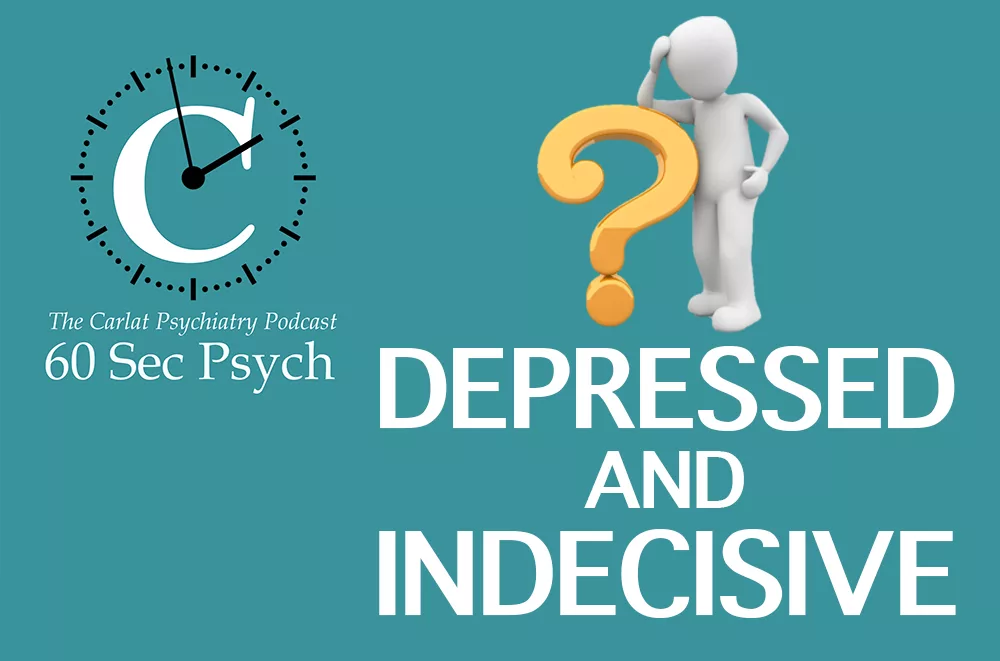Today’s study looked at psychological factors that predict relapse into depression. They people who were recovered from depression and taking antidepressants along with healthy controls, nearly 200 in total. All the underwent a decision making test that asked them to exert effort─a button pressing task─to get rewards. The antidepressants were then discontinued and the patients followed for 6 months to see who relapsed. [Link]
Published On: 8/15/2020
Duration: 2 minutes, 48 seconds
Transcript:
Today’s study looked at psychological factors that predict relapse into depression. They people who were recovered from depression and taking antidepressants along with healthy controls, nearly 200 in total. All the underwent a decision making test that asked them to exert effort─a button pressing task─to get rewards. The antidepressants were then discontinued and the patients followed for 6 months to see who relapsed. Here’s what they found:
- The patients in remission were less likely to exert effort to gain rewards than the healthy controls. This was true whether they were on or off the antidepressant (they tested that out in a randomized withdrawal phase as part of the study).
- The patients who wrestled with the decision to exert effort–taking a long time to make it–were more likely to relapse within 6 months of coming off the antidepressant.
And here’s what was not different: The health controls and recovered patients both exerted the same amount of effort once they made the decision to, and both found the results equally rewarding. Other research has found that depressed patients are less sensitive to rewards when in a depression, so it’s interesting that their reward sensitivity returns during recovery but their decisiveness does not.
In my practice I have patients rate their “difficulty making decisions” at every visit, and I’ve found this is often the most disabling symptom of depression. Patients can feel bad and still function well, but not if they are severely indecisive. I’ve also found this symptom useful in discriminating patients who are stressed out and emotional from those with clinical depression–healthy patients under acute stress are usually pretty good at making decisions. It’s when depression sets and everything seems equally worthless that this goes to pits.
The study also informs behavior therapy. People with depression have a tendency to make unrealistic plans that take a lot of effort for little reward. When it comes time to take action on those plans, they change their mind and give up, and this pattern becomes habitual. Next time you see a patient with depression, ask them about the plans they’ve been procrastinating on, and help them come up with something that requires less effort.
Got feedback? Take the podcast survey.


_-The-Breakthrough-Antipsychotic-That-Could-Change-Everything.webp?t=1729528747)



